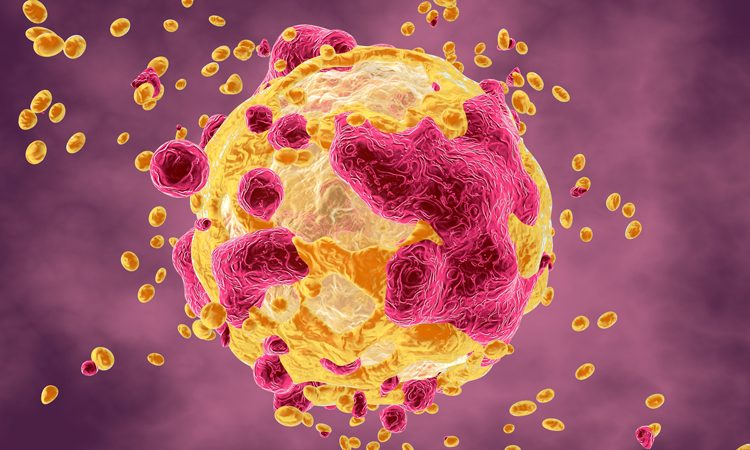Molecule discovered that regulates development of tumours
Posted: 9 September 2019 | Rachael Harper (Drug Target Review) | No comments yet
Researchers discover that a non-coding region of the genome originates a key molecule for the proliferation of cancerous tumours.


An intermediate molecule expressed from a region of the non-coding genome that is key to the development and differentiation of cells and for the expansion of tumour cells has been discovered. According to the researchers, their findings could have therapeutic significance.
Researchers Sonia Guil, leader of the Regulatory and Chromatin RNA group of Josep Carreras Leukemia Research Institute and Lourdes Farré of ProCURE (Idibell), both Spain have revealed how the RPSAP52 RNA molecule triggers the proliferation of cells and cancels their differentiation, making it easier for tumour cells to multiply and spread.
Guil and the team have investigated a non-coding sequence linked with a sequence that does code for a common oncogene in different types of cancer, called HMGA2. The non-coding sequence that originates RPSAP52, is just ‘in front’ of HMGA2. It has been discovered that it regulates the chain of events responsible for the increase in the number of tumour cells and the expansion of cancer tissues.
“RPSAP52 is an antisense transcript and regulates the entire HMGA2/IGF2BP2/RAS signalling pathway, which has a highly pro-proliferative and anti-differentiating potential on cells, so its activation promotes growth and keeps the cells in a non-differentiated state, as happens in the most aggressive tumour cells,” Guil explained.
The study was carried out by combining in vitro approaches with in vivo studies on animal models. The tumorigenic role of RPSAP52 in breast and sarcoma tumours has been confirmed and it can also have predictive value as a biomarker.
“For translational research, the findings are significant because these types of molecules are often present at low levels,” said Guil.
Therefore they can be attacked and eradicated more easily than the coding genes.”
The next step forward in this line of research will focus on generating in vivo tumour models and test small molecules that destroy RPSAP52 to study its effect on tumour growth.
The study was published in Nature Communications.
Related topics
Biomarkers, Genetic analysis, In Vitro, In Vivo, Molecular Biology, Research & Development, RNAs
Related conditions
Breast cancer, Cancer
Related organisations
Josep Carreras Leukemia Research Institute
Related people
Lourdes Farré, Sonia Guil



